
Workshop Summary Report Health and Access to Healthcare in Cornish Fishing Communities
11 April 2024, Environment and Sustainability Institute
 Project team: Rachel Turner, George Brock, Skylar Collins, Claudia Fry
Photo © Lewis Clarke.
Project team: Rachel Turner, George Brock, Skylar Collins, Claudia Fry
Photo © Lewis Clarke.

Introduction
This workshop was organised to discuss a report produced for Cornwall Council Public Health by University of Exeter researchers. The report examined: 1) the key health issues facing fishermen in Cornwall; 2) the challenges faced around access to healthcare; and 3) the ways in which health and access to healthcare have altered in response to changes in healthcare provision and the changing regulatory environment of the fishing industry.
The workshop brought together practitioners from the fishing industry and health sector across Cornwall. It sought to strengthen networks between fisheries stakeholders and public health bodies, with the goal of enabling more effective co-design of future healthcare interventions. The aims of the workshop were to:
1) Reflect on the report’s findings and recommendations.
2) Discuss challenges to healthcare access in fishing communities.
3) Collaboratively identify shared priorities and next steps towards improving health and access to healthcare resources in fishing communities. A pre-workshop survey asked attendees what they hoped to get from the workshop. The responses highlighted three key themes: 1) sharing knowledge and understanding of key challenges; 2) strengthening networks to supporting coastal communities; and 3) identifying ways to coordinate and collaborate locally (Fig. 1).

Hear about the research.
Understand the challenges and inequalities in delivering healthcare.
Listen to fishermen’s feedback.
Understand what matters most to the fishing community.
Share knowledge.
Understand the views of stakeholders working with this community.
Make connections and build stronger relationships.
Support our rural communities.
Better support and engage the fishing community.
Develop a multi-agency vision.
Implement coordination on a local level.
Identify ways to work collaboratively.
Scope a project which would close gaps in access, provision or coordination.
Figure 1. Participant aims for the workshop.
2 Workshop Summary Report
Photo © photoeverywhere
Reflections on the report’s recommendations
The morning’s discussion reflected on the findings of the report, the recommendations that it outlined, and the challenges involved in taking these forwards. Key discussion points are summarised here, grouped in relation to the report’s recommendations (1-5).
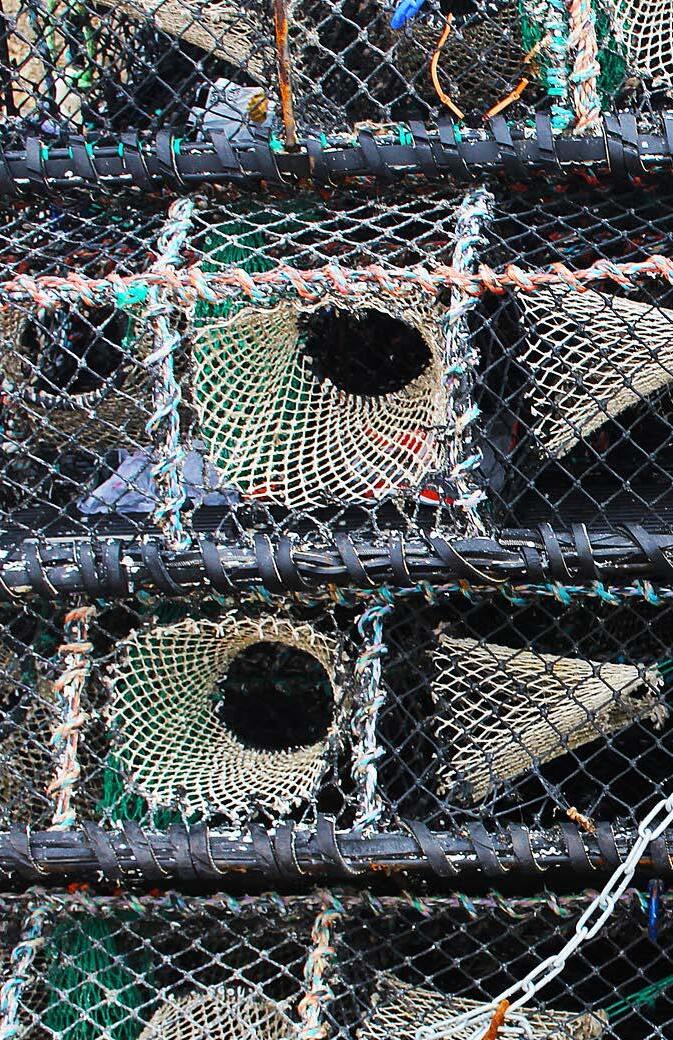
1. Service provision built on trust and understanding the fishing way of life
Building trust
l The location of services on the quayside is key to gaining interest and building trust.
l Building trust takes time and consistent presence to develop familiarity. During this process, uptake of services may be limited.
l There is a need to balance having familiar faces on the quay with building familiarity of the healthcare provider to build long-term trust in the organisation or service as well as trust in individual practitioners.
l It is difficult to build long-term trust in services when future funding is uncertain.
l Every contact with a GP matters as an opportunity to build long lasting relationships.
l Externally-driven changes (e.g. medical certificates) can lead to widespread mistrust in healthcare institutions.
Communication
l Word of mouth is an important influence on trust and decisions to seek healthcare.
l Engaging with both fishermen and fishing families is important as these interactions shape perceptions of healthcare providers.
l Fishermen want to speak to someone who understands their lifestyle.
l One size does not fit all when it comes to communication – existing WhatsApp groups and social media are important, but face-to-face communication is still needed.
Flexibility
l GPs can foster a culture of flexibility to adapt their practice and fit in with fishermen’s needs. This requires sharing knowledge of fishermen’s specific health needs and the type of care coordination needed (e.g. how timing of appointments could be affected by tides, weather and seasonality).
l Part-time work and geographical mobility mean that access to healthcare changes based on location and occupation.
P ho to © Pau l Stafordfor TravelMag . com Health and Access to Healthcare in Cornish Fishing Communities 3
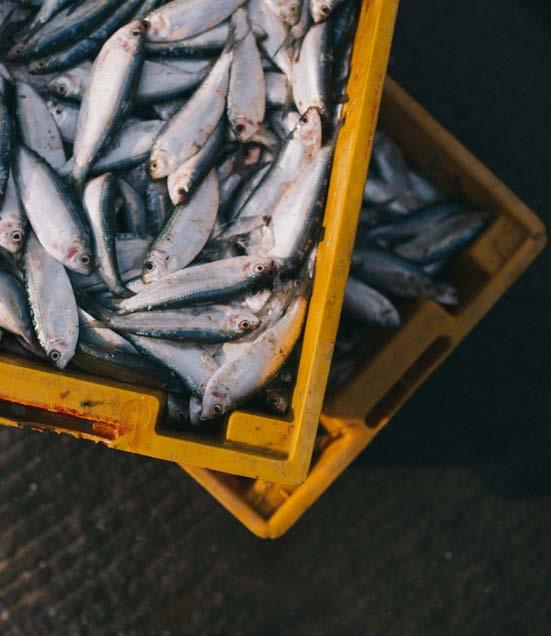
2. Tailored support that reflects fishermen’s needs and preferences
Supporting
current needs
l The rollout of the medical certificates created a significant mental health burden for fishermen. Action to waive certification for <10m vessels will not necessarily undo the impacts (e.g. sunk costs, some fishermen may have left the industry).
Addressing
hidden issues
l Familiar and easily accessible locations are needed to reduce barriers to access, particularly for stigmatised health conditions e.g. mental health, drug/alcohol dependencies, or male health issues e.g. prostate or testicular cancer.
l Drug and alcohol use is a taboo subject that is linked to fishermen’s reputation. Careful intervention is needed as disclosing substance use could have implications for employment. This sentiment was echoed for mental health problems, which may be seen by some as a risk onboard a fishing vessel.
4. Early intervention and prevention
l The rollout of medical certificates has had a negative effect on engagement with health services. Fishermen are reluctant to consent to their data being shared with the NHS and are reluctant to access healthcare, especially for preventative monitoring.
3. Inclusive and comprehensive service delivery
Unseen populations
l Migrant workers may avoid registering with the NHS or seeking medical help due to fear of expenses associated with healthcare. The efforts of some larger fleets to register ‘unseen’ fishermen at local GPs could be replicated elsewhere.
l Mapping target audiences for healthcare services would help inform plans to support people and connect them to individuals with whom there is a level of trust.
Rural communities
l Smaller numbers in uptake of healthcare in smaller ports can make it difficult to justify allocating resources. Moving away from numbers as a metric of impact would help to incentivise delivery of intervention at smaller ports.
l Each port has individual challenges and therefore needs tailored approach, especially with smaller ports.
5. Shaping future policy through evidence-based advocacy
l Widespread concern over the MCA’s handling of medical certification was highlighted as an example of a situation where coordinated advocacy as a collective voice could influence policy.
4 Workshop Summary Report
Cross-sector collaboration
The afternoon discussion focused on how the fishing industry and health sector can work more effectively together. Key priorities and challenges were discussed.
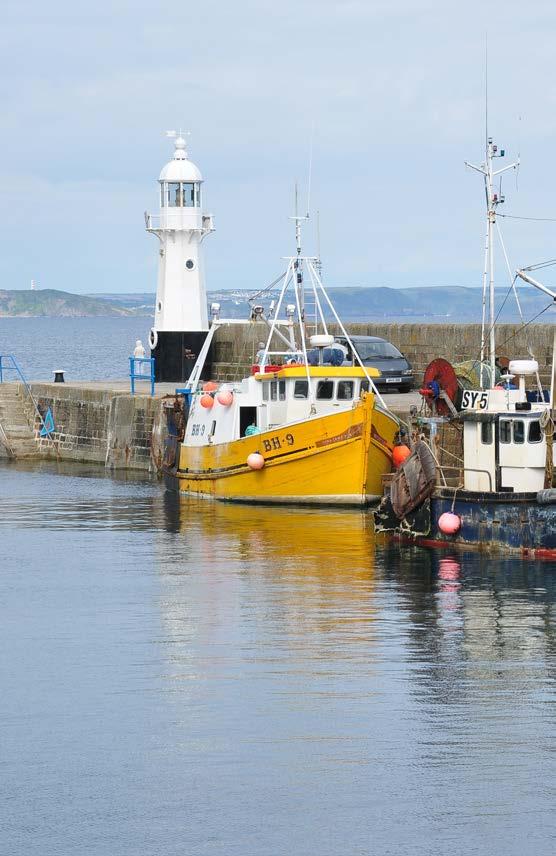
Multi-agency coordination
There was a shared sentiment that multi-agency coordination would help healthcare interventions reach the locations and fishing groups that need them most. The stated long-term goals of this coordination were to synchronise services, pool resources where beneficial, and establish a collective long-term vision.
Inclusive decision-making
Participants agreed that future healthcare programmes must be inclusive of fishing industry voices at design, development and delivery stages. Discussions emphasised the need to consider how the fishing industry’s voices can be given equal weight in decision-making, while avoiding giving false hope about what can be delivered or compounding feelings of not being heard. This will require engaging with trusted organisations in different ports, thinking about how to compensate active fishermen for their time where necessary, and seeking input from diverse groups across the industry.
Leveraging existing communication channels
Workshop attendees identified opportunities to: 1) disseminate updates and decisions from healthcare organisations through existing, effective communication channels e.g. WhatsApp groups in different fishing ports; and 2) leverage these
communication channels to better understand community needs and elicit feedback on health outreach interventions. The need to the respect all voices and knowledge equally was emphasised.
Data and evidence
Discussions identified data sharing, monitoring and evidence needs that would support the delivery of coordinated interventions. Suggestions included: 1) mapping target audiences to ensure effective deployment of services and sharing up-to-date data (e.g. on numbers of fishing vessels registered in Cornwall); 2) mapping the landscape of representative organisations and existing networks; 3) gathering success stories, quick wins and lessons learnt to better understand what works well and how these might be applied to other contexts; 4) collecting qualitative evidence of the impacts of healthcare interventions to capture broad outcomes beyond clinical data.
Funding
An important consideration of multi-agency coordination was the challenge of reconciling the multiple separate funding streams of each organisation. Further to this was the need to establish consistent, long-term funding, which will ensure quayside services can be provided consistently and trust can be built over a longer timescale.
Health and Access to Healthcare in Cornish Fishing Communities 5
Photo©Nilfanion
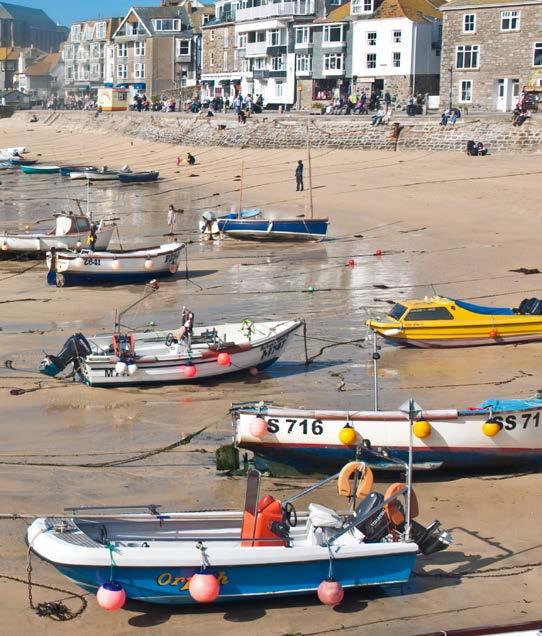
Steering group
Ideas and next steps
Discussions generated a list of ideas and actionable steps to take forward.
Establish a multi-agency working group that includes the voices of the fishing sector and healthcare organisations in the decision-making process. This will support future coordination efforts, provide a platform to plan and evaluate interventions, and act as a vehicle for wider advocacy around issues that influence health in fishing communities.
Healthcare champions
Coordinate engagement with individual fishermen in different ports who are willing to undertake training and become peer champions for healthcare services delivery. This could include passing on knowledge about available services and self-management of health (e.g. using blood pressure monitors, mental health first aid). This would be particularly valuable for malespecific and taboo health issues (e.g. prostate and testicular cancer, high suicide risk) where preventative or early intervention is key. Trusted organisations in the fishing community could play a role in facilitating this.
Raising awareness among healthcare providers
Encourage increased understanding and flexibility amongst healthcare professionals of fishermen’s needs and working hours, e.g. regarding tides and weather impacting ability to attend appointments. One way to support this would be to identify points of contact with each port who can advocate for the specific needs of each group of fishermen and build relationships with healthcare providers. This could follow the Veteran’s Champion model already used in GP surgeries. Workshop attendees also committed to sharing the report’s findings with the Integrated Care Board to raise awareness at a wider scale.
Cornwall Health Tour
Create further opportunities for collaboration in delivery of healthcare on the quayside. The idea of a ‘Cornwall Health Tour’ was suggested as a banner for synchronising quayside services and reaching smaller ports. Coordinating quayside efforts and outreach at specific times and locations increases accessibility of services and promotes a coordinated approach, supporting efforts to target preventable health conditions. NHS representatives plan to engage with the dental commissioner to explore opportunities for collaboration with the quayside dental programme.
Tackling stigma
Continue to remove stigma and address cultural constraints around discussing mental illness. Conversations around mental wellbeing should be encouraged, enabling people to talk about negative emotions or stress without worrying about diagnoses of mental illness or implications for employment. Helping Fairwinds to scale up their services locally would support this ambition. Peer champions or health advocates could contribute to mental health support, for example by using an ‘orange button’ system so fishermen know who they can talk to.
Equipment
Provide quayside or onboard equipment and training to aid in self-management of personal health. This could include blood pressure monitors, defibrillators and lockers for picking up prescription medication.
Support around drug and alcohol use
Substance and alcohol abuse is often overlooked in healthcare discussions and is often a taboo subject among fishermen, therefore monitoring prevalence and sensitively engaging people around this issue is a challenge. A key first step would be to develop an offer from healthcare providers, with input from industry representatives.
© Ph i l lip Cap p e r. 6 Workshop Summary Report
Photo
Attendee contact details

Cornwall Council Public Health Eunan O’Neill Consultant in Public Health Eunan.ONeill@cornwall.gov.uk Gareth Walsh Public Health Practitioner Gareth.Walsh@cornwall.gov.uk Cornwall Inshore Fisheries and Conservation Authority (IFCA) Sam Davis Chief Officer Samantha.Davis@cornwall-ifca.gov.uk Cornwall Rural Communities Charity (CRCC) Heather Emberson-Marl Fishing Animateur Heather.Emberson-Marl@cornwallrcc.org.uk Fairwinds Ceri Summers Lead Mental Health Practitioner Fairwinds fairwinds781@outlook.com Sarah Counter Lead Mental Health Practitioner Land to Sea landtoseacbt@outlook.com Fishermen’s Mission Eddie Fletcher Newlyn Office EddieFletcher@fishermensmission.org.uk Health Innovation South West Kate Ogilvie User Engagement and Co-Design Manager Kate.Ogilvie@healthinnovationsouthwest.com Healthy Cornwall Craig Manclark Healthy Cornwall Team Lead Craig.Manclark@cornwall.gov.uk Marcia Henning Health Improvement Practitioner Marcia.Henning@cornwall.gov.uk NHS Andrew Abbott ICB Director of Research and Innovation Andrew.Abbott1@nhs.net Andy Gordon ICB Senior Commissioning Manager Andy.Gordon@nhs.net Paul Abram West ICA Development Manager Paul.Abram1@nhs.net Matthew Boulter West ICA & Atlantic Medical Group M.Boulter@nhs.net SeaFit Carol Elliott SeaFit Manager PDMSeafit@fishermensmission.org.uk Seafood Cornwall Training Clare Leverton Project Manager Clare@seafoodcornwalltraining.co.uk University of Exeter Rachel Turner Senior Lecturer R.Turner@exeter.ac.uk Health and Access to Healthcare in Cornish Fishing Communities 7
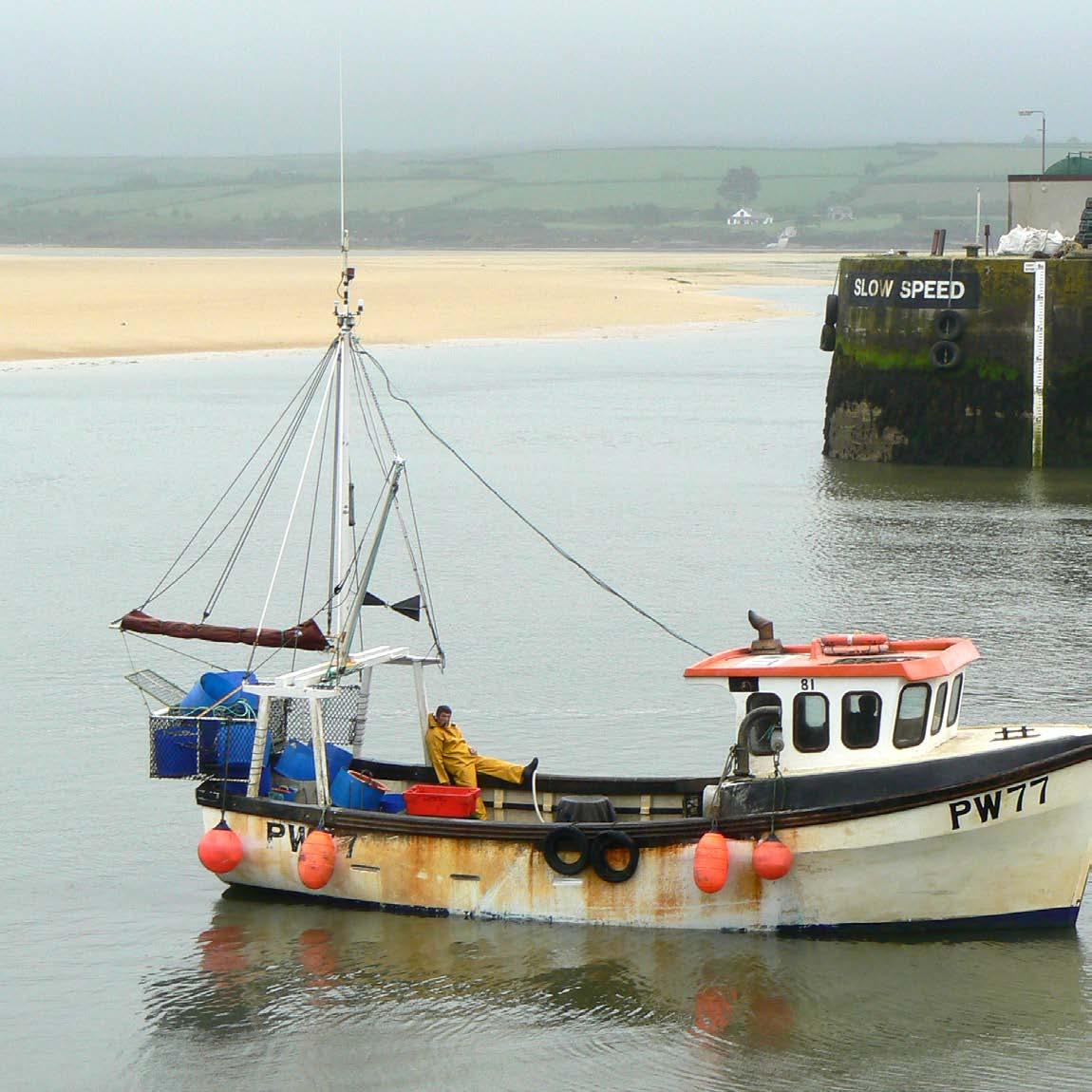

2024ESI002
Photo©MarkBridge

 Project team: Rachel Turner, George Brock, Skylar Collins, Claudia Fry
Photo © Lewis Clarke.
Project team: Rachel Turner, George Brock, Skylar Collins, Claudia Fry
Photo © Lewis Clarke.








